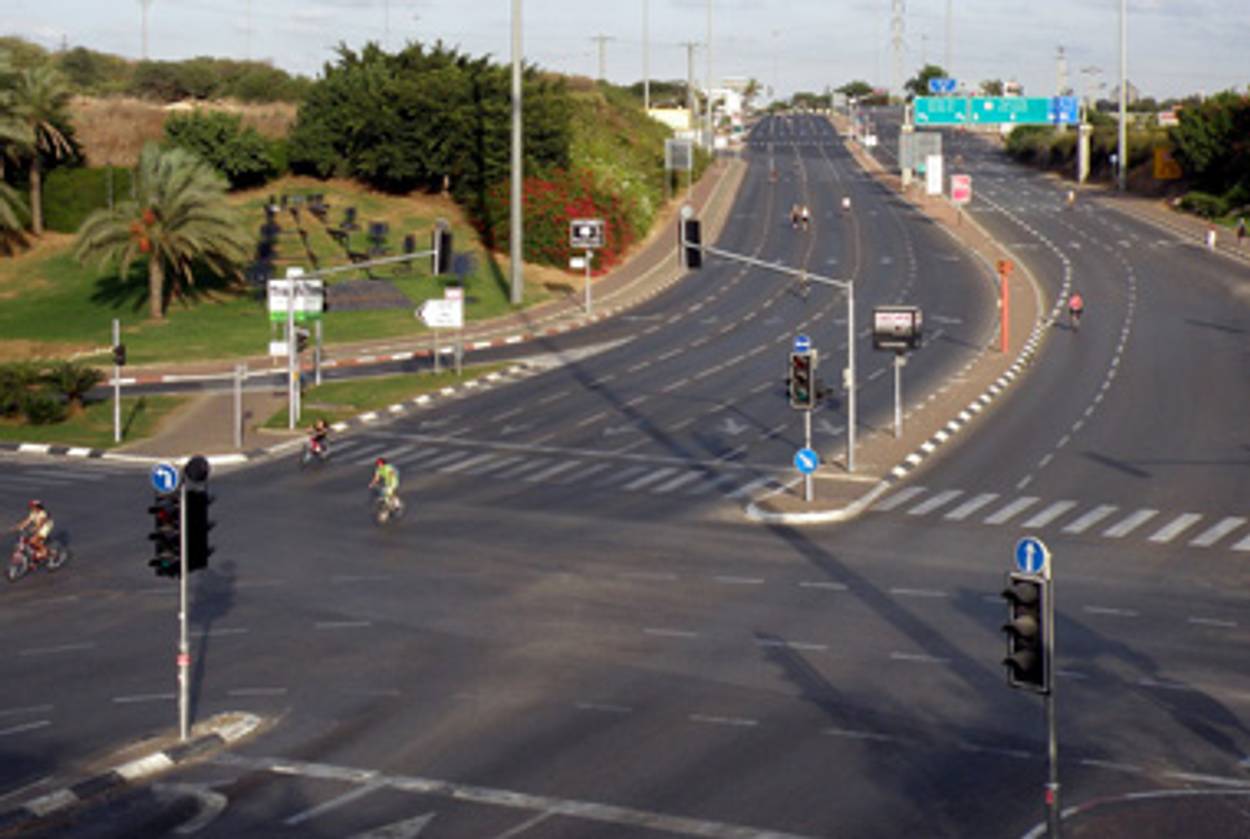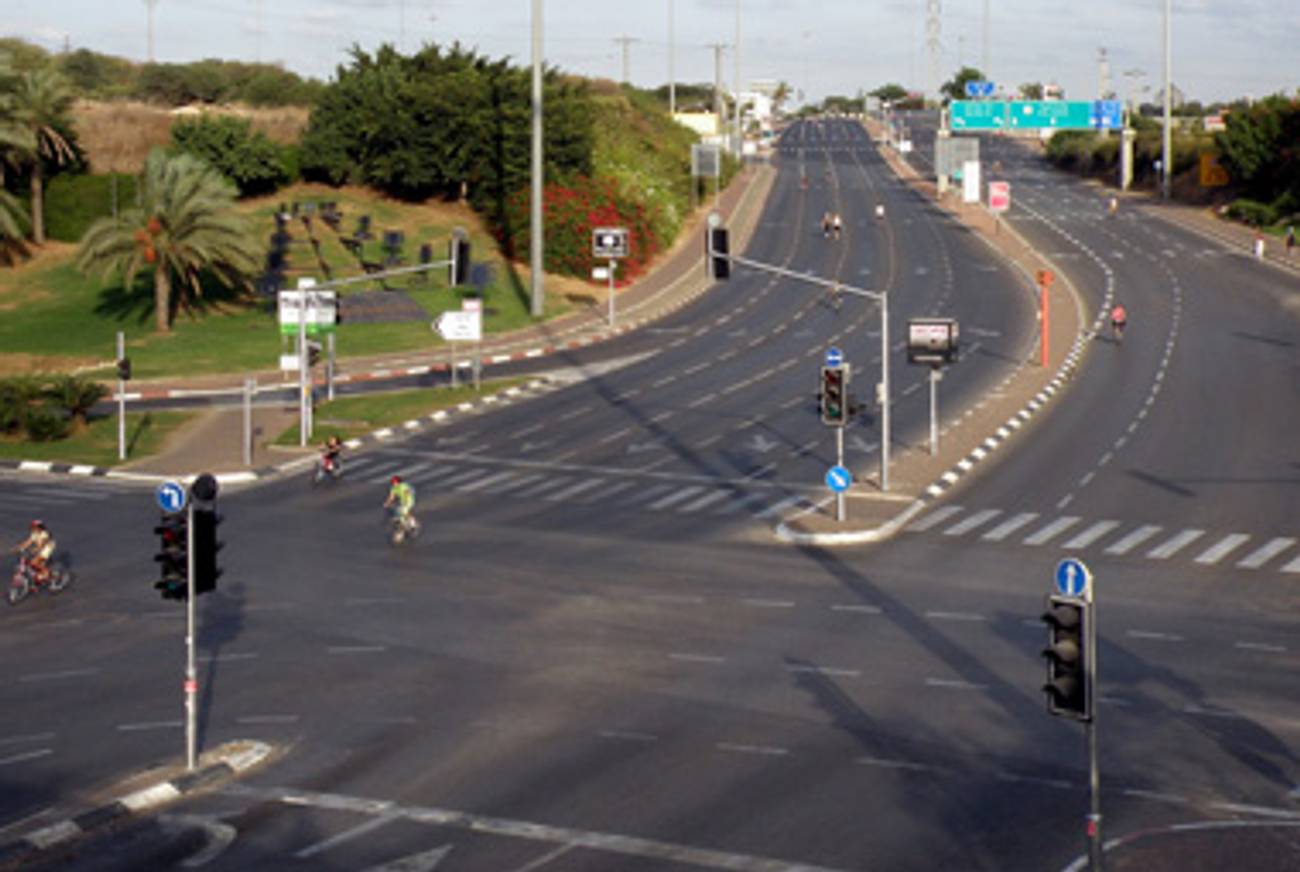Dark Night
How technology killed the silent, empty Israeli Yom Kippur experience




As Yom Kippur, the Day of Atonement, is almost upon us, now is the time for soulful reflections. Here’s mine: a hardened technophile with a doctorate in video games, an obsessive geek whose home is a mausoleum of machinery, I can recall few moments more peaceful than the Yom Kippur observances of my childhood in Israel, sitting on the unlit balcony of my grandmother’s house in Ramat Gan, unplugged and happy.
Although largely secular, my family took the Day of Atonement seriously. We would spend the last moments before the holiday’s descent tearing apart squares of toilet paper, as even this most mundane of acts was deemed disrespectful of Judaism’s most awesome day. Riding a bicycle, a Yom Kippur tradition among young and unobservant Israelis, was similarly judged in my family as excessively profane, and so, as soon as we would return home from synagogue after reciting Kol Nidre, I would run up the stairs and onto the balcony and look around.
The neighborhood, a small and modest enclave in the heart of a small and modest town bordering on Tel Aviv, was shrouded by the thick, ink-blue sky. The glow of television sets, the flickering of refrigerator lights, and all the other ghosts of electricity that haunt our daily lives were nowhere to be seen. The neighborhood was dark, dark and quiet, with mumbles and prayers drowned by the shattering silence. And I, a kid who spent most of his days with his Atari and VCR and various battery-operated trinkets, would just sit there and stare and listen and give myself over to this immense stillness and feel something that wasn’t precisely religious but intensely personal, a feeling I suppose was peace.
It faded fast.
By the early 1990s, as I stumbled into pubescence, Israel was rapidly connecting to cable TV. I still spent Yom Kippur with my grandmother, and I still sat on the same balcony, but it wasn’t the same. Peeking, out of the corner of my eye, at the television, I knew that it now concealed glorious secrets. Even if the Israeli channels darkened their screens for a day on Yom Kippur, MTV in Hong Kong, or the soccer channel out of Milan, or any of the other stations included in our subscription plan went about their business as usual. And they were just there, within reach, hiding behind the reflective screen. All I had to do was turn on the set.
Finally, one year, I did. I was 16, and angry at the world as only a 16-year-old can be. God, it seemed to me back in those days, days soaked in rage and alcohol and self-pity, should ask for my forgiveness, not the other way around. Instead of observing his holiest day, I decided to entertain myself. I abandoned the balcony for the basement. I spent the day watching stale British comedies from the 1970s. It was the most miserable Yom Kippur I’ve ever had.
As I grew older, youth’s rebellious streak mercifully fatigued, I resolved to return to the tranquility I’d known in my childhood. But it was gone, slain, in part, by technology. On Yom Kippur of 1995, for example, now 19 and a soldier, I returned to my perch on the balcony. I surveyed the neighborhood. It was no longer dark. Some neighbors were watching television, however discreetly, and others, I could tell by their open windows, were engaging with a new presence: the Internet.
Despite all my promises to remain disconnected, I was burning with curiosity. It was the day of O.J. Simpson’s verdict. I just had to know how it ended. I slipped into the study and logged on.
And so, with each new year, a new technology joined the parade marching on my peace of mind. Video games got better, phones smarter, the Web more intricate. I finished the army and moved to New York, where the temptation to engage with gadgets became even stronger, especially as the internet now connected me to social networks populated by my friends. As one of Twitter’s earliest users, I felt compelled to spend parts of Yom Kippur 2007, sharing my reflections, in 140 characters or less, with a few dozens of my closest friends. The notion of taking a day off from what media critic Todd Gitlin elegantly dubbed the Torrent seemed ludicrous to me. The whole point of a torrent is that there are no days off, not even for atonement, not even to God.
Or, at least, not for me. Some people, I know, have no problem stepping out not only yearly but weekly, observing Shabbat away from media and machines. I’m incapable of such mastery, partially because I know that no matter how unplugged I manage to become, or for how long, I will never again have that serenity of Yom Kippur on the balcony in Ramat Gan, with the whole world sheltered in soft shadows and everyone sitting wordlessly in the dark. I can be as still as I want, but television, the Internet, the cellular phone, they’ll always be there, emissaries from a bright world of circuitry and screens, a world I’ve come to inhabit and love, a world that Ramat Gan, circa 1985, knew nothing about.
Liel Leibovitz is a senior writer for Tablet Magazine and a host of the Unorthodox podcast.
Liel Leibovitz is editor-at-large for Tablet Magazine and a host of its weekly culture podcast Unorthodox and daily Talmud podcast Take One. He is the editor of Zionism: The Tablet Guide.